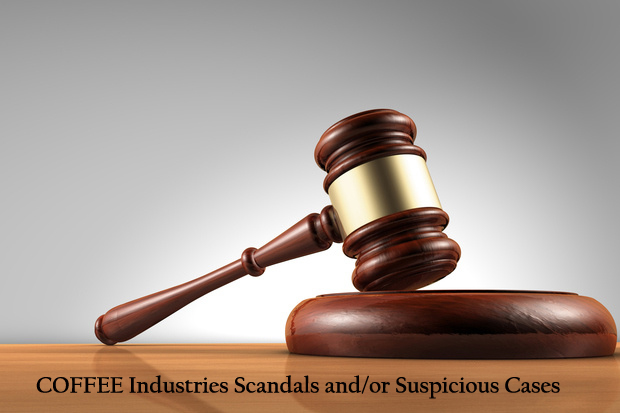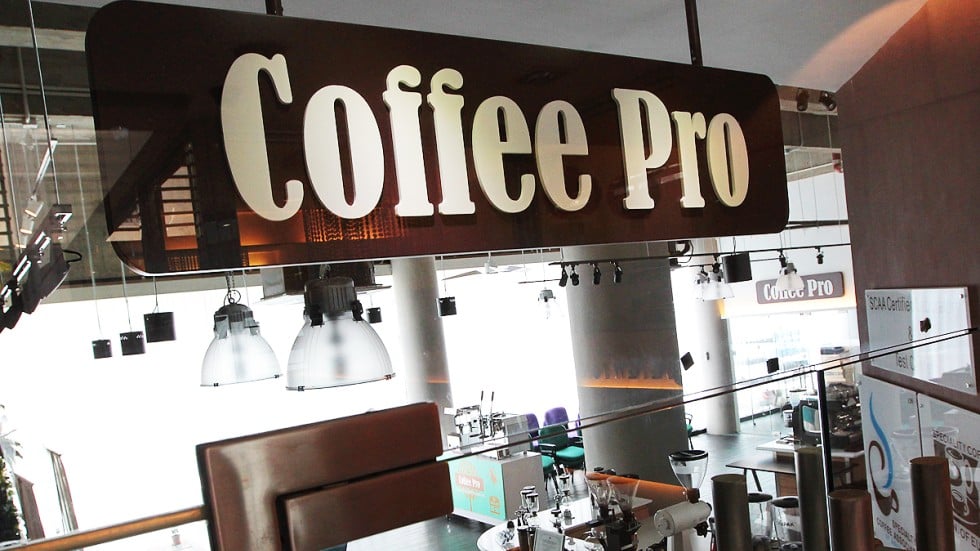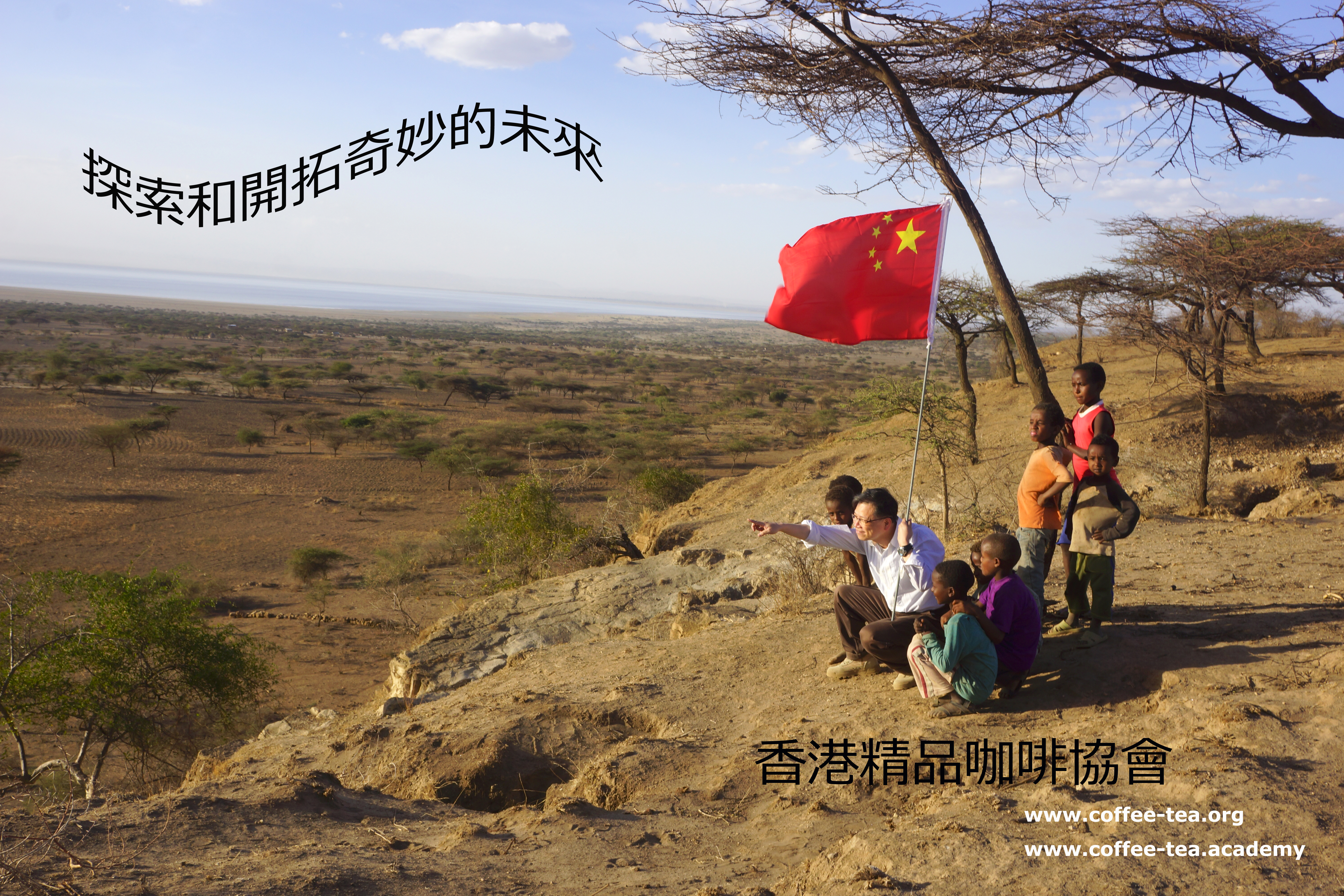Workers arrested at coffee school
Boss and two foreigners accused over illegal employment as industry points to lack of local experts to teach how to make exotic coffees
Hongkongers can’t get enough of their speciality coffees – but trouble is brewing when it comes to training baristas, with immigration officers moving in on one of the city’s few certified coffee-making schools.
Two men from Latin America and their local employer are understood to have been arrested on Saturday at the Cheung Sha Wan premises of Coffee Pro. The Immigration Department confirmed the arrests but did not identify the employer.
The head of the Professional Coffee Association, a local group representing the industry, says the arrests are a sign of the lack of local teachers qualified to make the kinds of exotic coffees served at the city’s emerging generation of high-end cafes.
The two foreign men, one from Brazil and the other from El Salvador, are in their 30s and 40s and are understood to have entered the city as visitors the week before their arrest.
The pair were held for breaching their conditions of stay, while their employer, who was not named, was suspected of employing illegal workers, a department spokesman said.
Coffee Pro staff yesterday confirmed to the South China Morning Post that immigration officers were at their Castle Peak Road office on Saturday.
The school’s operator Raymond Tong was out teaching coffee-making courses elsewhere, an employee said. Tong did not respond to repeated requests for an interview.
Professional Coffee Association president Billy Lee Kwai said coffee-making schools sometimes had to rely on overseas talent to teach advanced courses, although local experts could handle lower-level teaching.
“Many young people are hoping to join [the profession] … There has been a several-fold increase in the number of those taking [certified barista] courses over the past five years,” he said.
While there is no single recognised qualification for baristas, industry insiders say diplomas from the Speciality Coffee Association of Europe (SCAE) and the Specialty Coffee Association of America (SCAA) are most valued.
Describing itself as “the only SCAA-certified coffee training lab in Hong Kong”, Coffee Pro offers courses for enthusiasts, as well as professional certification. Its website boasts of corporate partners including German appliance brand Miele and several charities.
At Coffee Pro’s offices, a certificate awarded by the SCAA recognising the venue as a “certified teaching laboratory” is on display, along with other SCAA and SCAE certification.
More than 200 people have completed the company’s certified courses, according to its website.
It offers three-day grinding and brewing courses at three different levels for HK$6,000, while an advanced four-day roasting course costs HK$23,000.
REMARKS : SCAE has been identified by E.U. Official Office in HONG KONG as commented SCAE’s nature as below: http://www.coffee.org.hk/2017/12/26/notice/
-
歐盟駐港澳辦公室……..
正式回應了我們學院和協會的查詢,歐盟駐港澳辦公室正式並通過官方郵件回信,並證明The Speciality Coffee Association of Europe (SCAE) 不是由歐盟“官方認可認證機構”,也不是歐盟成員的教育部認可的教育發証書及認證機構。
因此,The Speciality Coffee Association of Europe (SCAE) 簽發的證書和文憑都不具有歐盟 官方認可認證正式的學歷身份地位!
這意味著,通過用商業授權系統程序,代理他們發出紙製紙證書 ; 使他們帶來可觀的業務收入!SCAE 簽發的證書及文憑課程體系和水平,檔次,並不意味著 ; 在具有任何官方認可認證正式的系統; 並不意味著 SCAE 在具有國際標準歐盟官方認可認證正式的結構格式的證書及文憑課程體系。
-
European Union Office to Hong Kong and Macao officially replied to our Academy & Association, and, certified by official email reply, and, testified SCAE is not an “Officially Recognised” body by EU.
Dear Mr Yuen,
Thank you for your enquiry and apologies for the delay in responding.
SCAE is not “officially” “recognised” by the European Union. Nor do they claim to be, from what I see in their website. SCAE is a sector-specific association/lobbying agency (there are hundreds of the sort in Europe, representing many sectors across the economy) . SCAE may interact with the European Union institution, but that does not mean it is “officially recognised”.
By the same token, in my understanding the SCAE diplomas are not “officially recognized by EU Authority as a formal educational system and officially accepted and certified/recognized by EU members’ Universities and educational ministries”.
All of the above is in no way a negative judgment passed on SCAE, its activities and its diplomas.
I hope this is useful to your purposes
Best regards
Sandro
Alessandro Paolicchi 鮑歷奇
Head of Trade section
European Union Office to Hong Kong and Macao
20/F, St.John’s Building, 33 Garden Road, Central, Hong KongOffice (+852) 2230 5603 or Mobile (+852) 92669467
alessandro.paolicchi@eeas.europa.eu
http://eeas.europa.eu/delegations/hong_kong/
http://www.facebook.com/EUOfficeHongKongMacao



